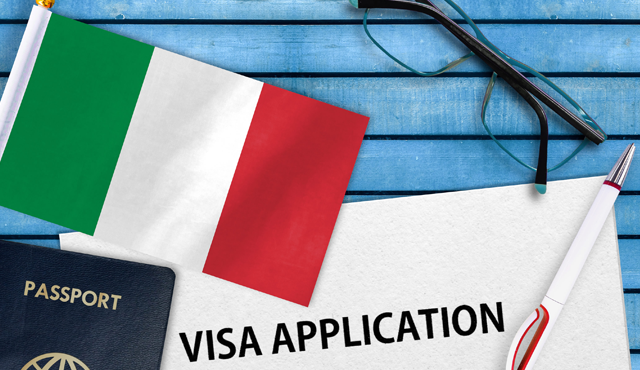Italian citizenship is in high demand, especially for individuals with Italian ancestry. Many people, upon discovering an Italian ancestor in their family tree, seek to apply for citizenship. While the application process itself is relatively straightforward, delays have become common, especially when applying through Italian consulates abroad, which are often overwhelmed with requests. As a result, applicants can face waiting times of several months or even years.
With the rise of remote work, some individuals are choosing to move to Italy and apply for citizenship directly at a local City Hall (Comune). While this can sometimes expedite the process, it’s important to note that processing times vary from city to city, and some municipalities may also have lengthy waitlists.
A common question for those in this situation is: “Can I work in Italy while waiting for my Italian citizenship?” The answer is yes — though there are a few important caveats.
The Permit for Awaiting Citizenship
If you’re eligible to apply for Italian citizenship, you may also be eligible for an Italian residency permit for those awaiting citizenship, known as a Permesso di Soggiorno per Attesa Cittadinanza. This permit allows you to live in Italy while your citizenship application is being processed. However, there are specific steps to follow and some conditions you’ll need to meet.
1) Confirm Your Eligibility for Citizenship
First and foremost, you need to ensure that you meet all the legal requirements for Italian citizenship. This includes gathering all necessary documents, such as birth certificates and marriage records, and having them both legalized and translated.
2) Move to Italy
Once you have your documents in order, you’ll need to relocate to Italy. Upon arrival, you must report your presence to the local police (Questura) within eight days.
3) Register Your Residency
The next step is to apply for residency at the City Hall (Comune) in the city where you plan to live. Some municipalities process residency applications more quickly than others, so be prepared for possible delays. As part of this process, the local police will verify that you are living at the address you provided.
To complete your residency registration, you’ll need to present either a lease agreement for a minimum of one year or proof of home ownership. If you’re renting, the lease must be registered with the Italian tax authority.
4) Submit Your Citizenship Application
After your residency is confirmed, you can submit your citizenship application at the local City Hall along with your supporting documents.
5) Apply for the Residency Permit for Awaiting Citizenship
Once your citizenship application is submitted, you can apply for the Permesso di Soggiorno per Attesa Cittadinanza at the post office. This residency permit is essential for staying in Italy while your application is processed.
Working in Italy with a Residency Permit
A recent amendment to Italian immigration law has clarified that those holding a residency permit for awaiting citizenship are allowed to work. Specifically, Article 6, paragraph 1 bis (d) of the Italian Immigration Law allows this permit to be converted into a work permit if all necessary conditions are met, enabling the holder to engage in employment.
Moreover, you don’t have to wait for the permit to be issued to start working. Once you’ve applied for the residency permit, you can begin working as soon as you receive the application receipt. If you’re employed, your employer will need to file the mandatory Unilav communication (for standard employment contracts) or report your employment to INPS (for domestic work).
Special Cases
If your citizenship claim involves a legal process — such as cases where you’re seeking recognition of citizenship through a maternal ancestor — the process can be handled by a lawyer via a judicial proceeding. In these cases, you are not required to be physically present in Italy for the duration of the legal proceedings. However, if you wish to remain in Italy during this time, you can still apply for the residency permit for awaiting citizenship, which also permits you to work.
Send your questions regarding Italian law to cbortolani@aliantlaw.com and I’ll be glad to answer them.
The content provided in this Q&A column is intended solely for general informational purposes and does not constitute legal advice. The information presented here is not tailored to any specific situation or transaction and should not be relied upon as a substitute for professional legal counsel. Legal issues can vary widely based on individual circumstances and jurisdictional nuances. Therefore, it is crucial to consult with a qualified legal professional regarding your specific case or concerns. Please be aware that no attorney-client relationship is established by accessing or interacting with the information provided in this column. The column’s author and publisher disclaim any liability for actions taken based on the information contained herein.
 Fra Noi Embrace Your Inner Italian
Fra Noi Embrace Your Inner Italian







